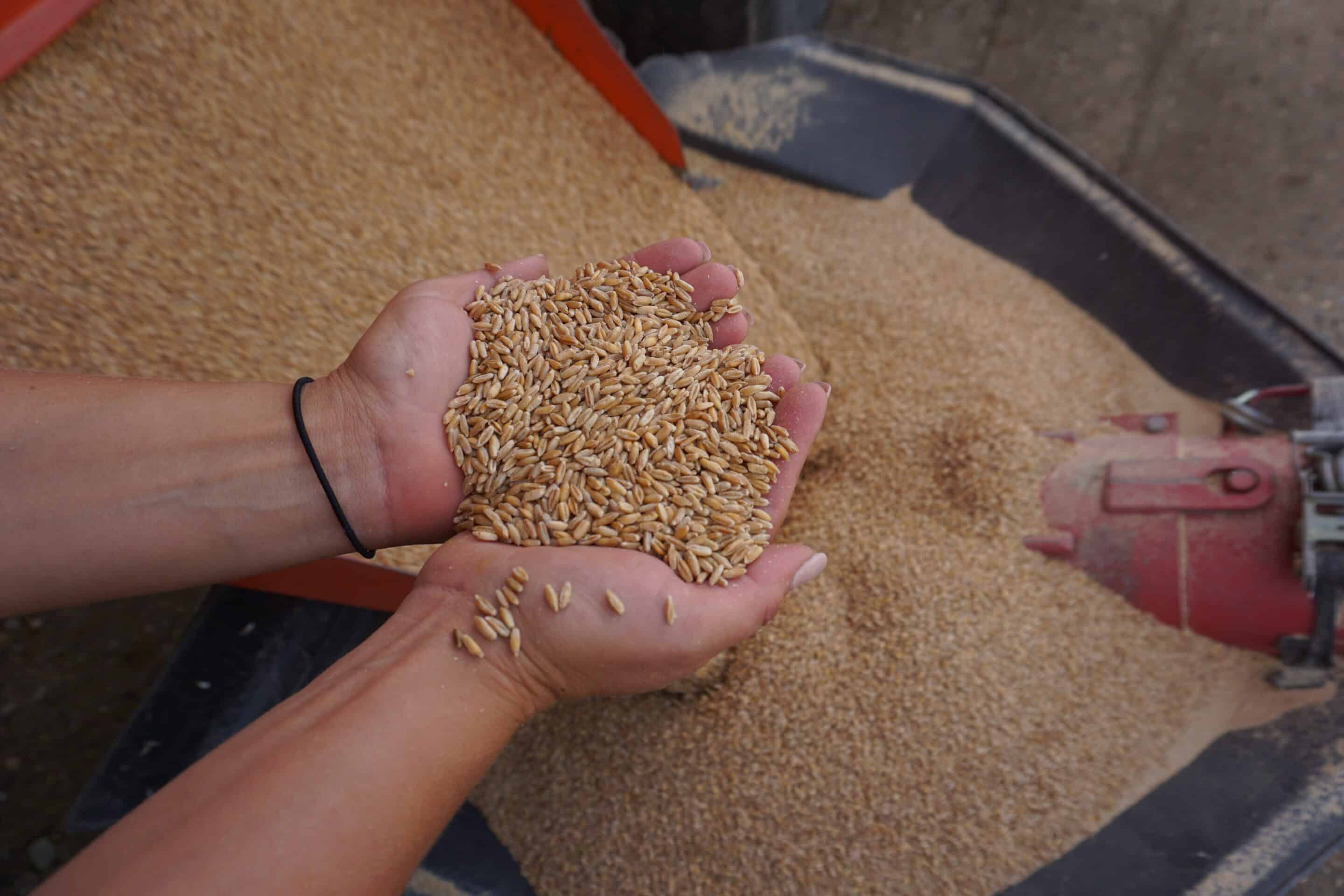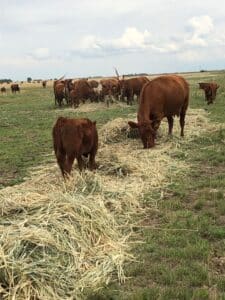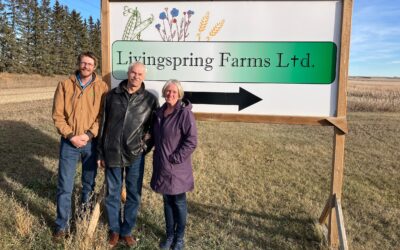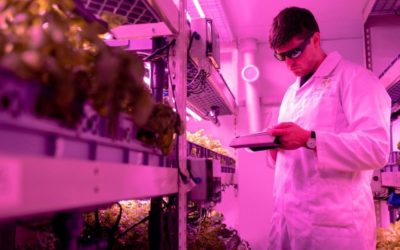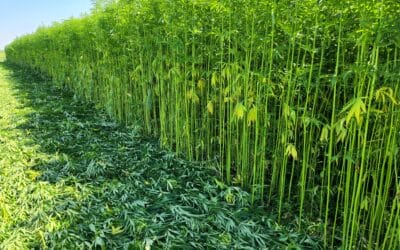At Corns Seeds they don’t just grow seeds, they also work with the plant breeders who develop those seeds.
The Corns family has been farming for four generations. In that time, they’ve always focused on innovating in order to grow and keep the farm going for the next generation.
“Land stewardship has always been a really big focus on our farm. We’re kind of born and bred farmers. So, we’ve always paid a lot of attention to what varieties are going to do well here and what varieties are going to leave the land in good shape,” Whitney Corns says in a phone interview.
Her grandfather Harvey Corns was the one who started the family’s interest in the seed industry. In the 1960s, Harvey started growing rye seed for Progressive Seeds, but it wasn’t until the 1990s when brothers Bryan and Gary (Whitney’s father) Corns started the family’s pedigreed seed business. Whitney herself returned to the family farm six years ago after a stint working in the Okanagan Valley in British Columbia in the wine industry.
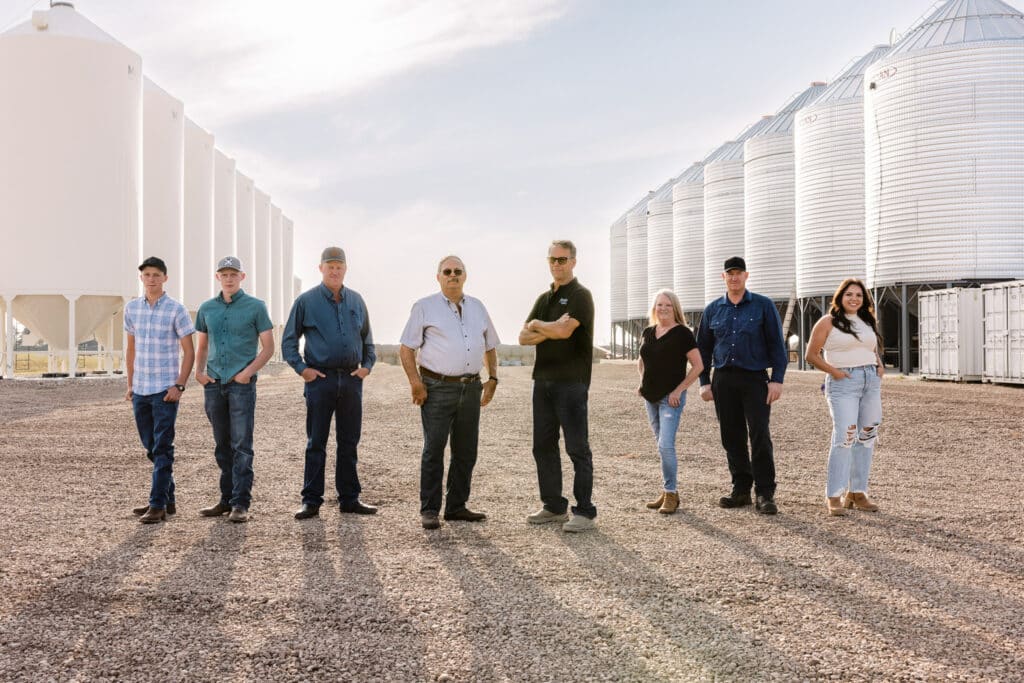
The team at Corns Seeds in Grassy Lake, Alta. (L-R) David Loewen, Poncho Loewen, Johan Loewen, Bryan Corns, Gary Corns, Brenda Corns, Abe Neufeld, and Whitney Corns. Photo: Bev Van Es
“(Bryan and Gary) have farmed together their whole lives. And they were quite progressive with trying new crops and trying new rotations and using different types of equipment to improve soil health around our operation,” Whitney explains.
The Corns have 9,000 acres of cropland and grassland in Grassy Lake, Alta. The cropland is a mix of irrigated and non-irrigated, running on a four-year crop rotation. For pedigreed seed, the family grows winter and spring triticale, winter wheat, barley, oats, and forage peas and sell sorghum sudangrass, millet and other cover crop seeds. They also grow commercial canola, silage, and feed grains.
The family doesn’t just grow seed and other crops, they also have a 400 head herd of Red Angus beef cattle. The livestock have elevated the seed side of the business, with the Corns taking an interest in forage seed and other grains to feed their animals.
“The livestock market really hadn’t been addressed and focused on by a lot of seed companies. So, we were really out there trying to find different varieties and different grains to help our operation, help our cows by making good quality feed,” Whitney says, adding this interest is what pushed them into the pedigreed seed business.
Their decision to get into the seed industry doesn’t stop at the seed growing level. The Corns have also taken an active role in working with plant breeders and breeding programs to test out and discover the best varieties to grow on irrigated and non-irrigated land and find what are best to feed to livestock.
“We do spend a lot of time working with the research stations, specifically out of Lacombe. We have the distribution rights to some winter triticales, including AB Provider, AB Bronco and Luoma. We’re always up to have discussions with the plant breeders and look at the data and plots they have,” Whitney explains.
One of the plant breeders the Corns work with is Mazen Aljarrah, the triticale crop breeder at the Olds College’s Field Crop Development Centre (FCDC) in Lacombe, Alta. The Corn’s relationship with FCDC and its triticale breeding program is long established with the Corns first working with Aljarrah’s predecessor Don Salmon.
“Corns Seeds has really tremendous experience on triticale market, especially in the southeastern part of Canada and U.S. Corns Seeds provides FCDC with all (the) support to market and promote our released triticale varieties,” Aljarrah explains in a phone interview.
Bryan, Whitney’s uncle, is a regular guest speaker for FCDC at their field days talking about his experience growing and selling triticale. In these sessions, he’ll answer questions from other farmers and explain the benefits of growing both winter and spring triticale varieties.
The Corns also provide important information to Aljarrah and his team about what end users are looking for regarding crop varieties.
“It’s really important for someone to link all of those together and communicate what the end consumers are looking for and what their needs and requirements are,” Whitney says.
The relationship is mutually beneficial. Aljarrah adds he’ll frequently hear from the Corns telling him which future triticale varieties would be beneficial for farmers growing the crop or farmers feeding it to their livestock.
“I believe working or collaborating with the Corns is a kind of a significant improvement to our work on the breeding, especially on the winter triticale side,” he says.
The Corns family have firsthand witnessed their impact on the seed industry from the crop varieties available to the varieties now grown throughout Alberta. Whitney points out that in the Alberta Seed Guide seed listings you will now see more listings for different types of forage grasses.
“We’ve been doing this for decades. And a big part of it is everything we do sell and retail on our farm, we do use on our own operation,” she says. “Our cattle operation has given us decades of experience in forage and a lot of insight on how to better utilize these varieties and products to feed an animal.”
As the farm moves forward, the Corns are working on succession planning. Three years ago, they changed the operation’s name from Corns Brothers Farm to Corns Seeds to include the next generation now working on the farm — Whitney. As Whitney looks toward the future of the farm, she wants to expand the seed side of the business and start dedicating more time to on-farm research and demo plots. She also wants to strengthen the farm’s crop rotation by introducing new crops and utilizing the land the Corns have by focusing more on double cropping.
For Whitney, she’s grateful to have the opportunity to continue the family farm as the generations before her did.
“Being fourth generation, it means something. I’ve got to witness the passion that my family has had in taking care of this land and raising crops, building a business, raising your cattle. So, it does mean a lot to be able to come and carry that on for another generation,” Whitney says.
Header photo — Winter triticale seed being loaded into the bin at Corns Seeds in Grassy Lake, Alta. Photo: Corns Seeds
Related Articles
Yadeta Kabeta is Breeding Barley in the Heart of Cattle Country


